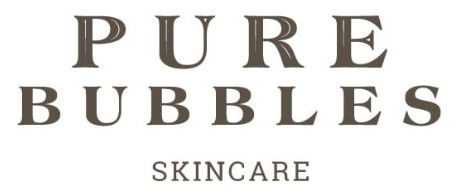Collapsible content
RETINOL
Retinol is commonly known as Vitamin A. Vitamin A is a powerful antioxidant that the body uses to maintain healthy skin, teeth, and vision. Retinol works in skin by promoting faster growth rates, thus producing fresher, livelier skin. As a part of a healthy skin regimen, some ways of applying retinol is by topical creams, lotions, and gels. These treatments are available over the counter. When used correctly, topical retinol compounds are safe to use and, in most cases, will result in healthier skin.
Skin loses elasticity over the years and gets wrinkles and age spots. There are two different causes for aging skin. The first is intrinsic or chronological aging. Over time, skin loses elasticity and thickness and becomes prone to easy tears and wounds. Skin also loses responsiveness to keratinocytes and fibroblasts, decreasing its ability to reproduce dead cells. Photoaging is the second cause for aging skin, and UV sources and the sun’s rays contribute to this kind of aging.
Retinol for acne unclogs pores, which can allow for other acne treatments to be more effective. Retinol treatments also prevent dead cells from clogging pores, thus reducing outbreaks.
Retinol is one of the earliest discovered Vitamins, it is an essential nutrient for the body and affects almost all the tissues and cells in different ways. Retinol plays an outstanding role especially in regulating the growth of epithelial cells and maintaining the normal shape and function of epithelial tissues. Therefore, Retinol can effectively prevent skin keratinization, increase skin elasticity, keep skin moist and shiny, and contribute to the treatment of acne, pustules, pigmentation and other diseases.Retinol works effectively with Niacinamide and other actives in moderation.
NIACINAMIDE
Niacinamide is an activeingredientfound in many cosmetics and personal care items. It is a cost-effectiveingredientwith proven skin whitening, anti-aging, and moisturizing properties. It is the active form of vitamin B3, or niacin, in personal product formulations. one can use niacinamide or nicotinamide to treat acne and oily skin.
Niacinamide has anti-inflammatory properties that can benefit consumers with acne and inflammatory skin conditions. Niacinamide is a derivative of vitamin B3 that works to prevent melanin from reaching the surface of the skin. Niacinamide also has anti-aging effects. Niacinamide pairs well with all actives in moderation.
GREEN TEA EXTRACT
Green Tea Extract is derived from the leaves of Camellia sinensis. It contains anti-oxidantingredients, mainly green tea catechins. Green tea and its derivatives are sometimes used as dietary supplements and in alternative medicine. It is also good for eliminating free radicals, anti-aging, anti-bacterium, and radio resistance.
SODIUM HYALURONATE
HYALURONIC ACID delivers outstanding tactile experience and skin revival immediately after application. This active provides an excellent hydration capacity for perfectly moisturized skin and improves skin smoothness, elasticity and freshness.
HYALURONIC ACID-BT is a white to off white, fine granulated powder. It is a pure sodiumhyaluronate powder for cosmetic application. The high molecular mass un-branched polymer belongs to the group of glycosaminoglycans with a molecular mass of about 1.6 MDa.
ECTOIN
This is a natural & powerful multifunctional activeingredientwith outstanding, clinically proven efficacy. The 100% natural single molecule provides excellent anti-aging and cell-protection benefits.Ectoin natural repairs improve damaged, aged or stressed, and irritated skin, promoting skin barrier repair and long-term hydration.
It shows comprehensive anti-pollution efficacy and blue light protection and supports a healthy skin microbiome – for a scientific approach to inefficient anti-aging and skin protection concepts. Suitable for all skin types including sensitive, allergic, and baby skin.
TREHALOSE
Trehalose- is a non-reducing and natural disaccharide. It can effectively protect the epidermis cell, prevent skin aging, moisturize skin, and make skin brighter, smooth, and naturally healthy.
The skin conditioning benefits make it one of the most importantingredients for moisturizing cosmetics.
PALMYTOYL TRIPEPTIDE-1
It acts as a messenger of cutaneous re-structuration and repair, this peptide works synergistically to restore and maintain the skin’s youthful appearance.
This product is useful in anti-aging products and wrinkle treatment products such as gels, serums, lotions and creams.
PALMITOYL TETRAPEPTIDE-7
It has the ability to produce increased skin firmness, smoothness, and elasticity.
PHRAGMITES KHARKA AND PORIA COCOS EXTRACT
It is a natural soothing active. It is typically useful in the treatment and care of skin, which is stressed by external factors. It will help in reducing skin redness, will alleviate skin irritation and will help in normalizing and keeping the skin’s natural balance.
POTASSIUM AZELOYL DYGLYCINATE
Potassium azeloyl dyglycinate - is a water soluble derivative of Azelaic Acid. This glycine-mixed syntheticingredientis believed to convey many of the same benefits as pure azelaic acid, but is easier to incorporate into various different types of cosmetic formulas. PAD is an awesomeingredientwith anti-inflammatory, skin brightening and anti-acne effects.
